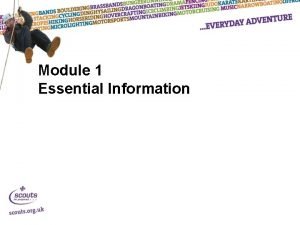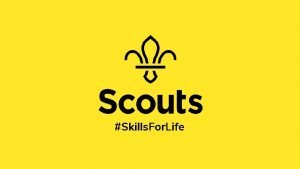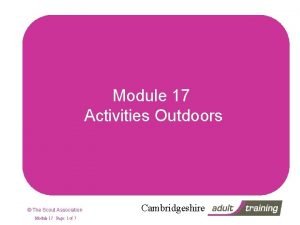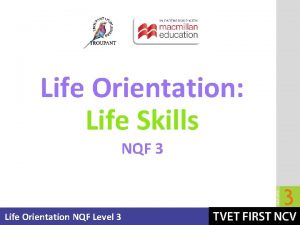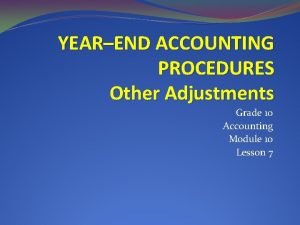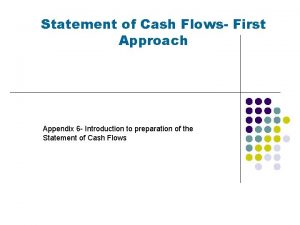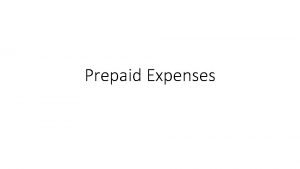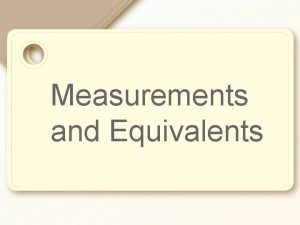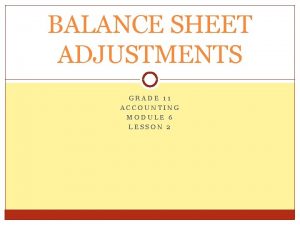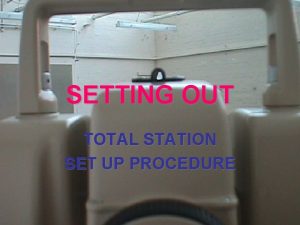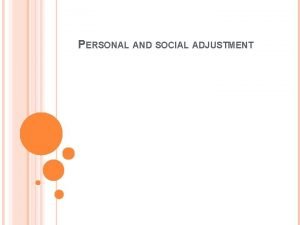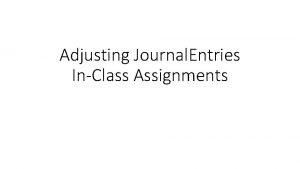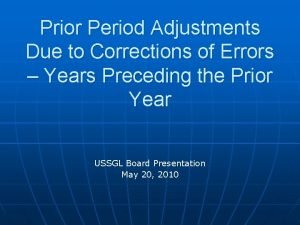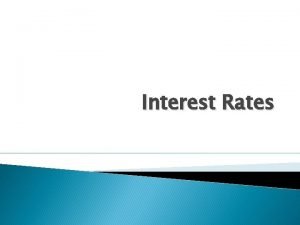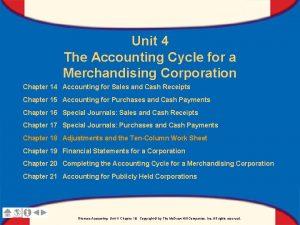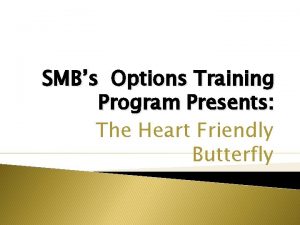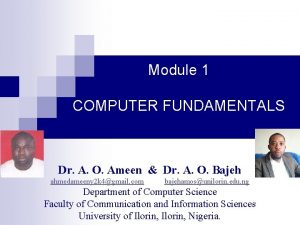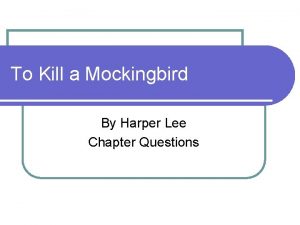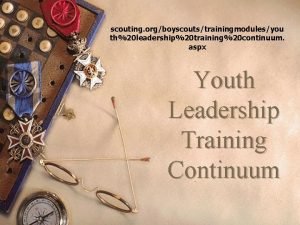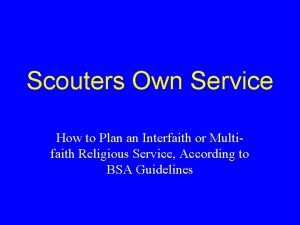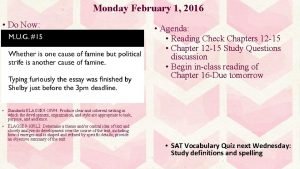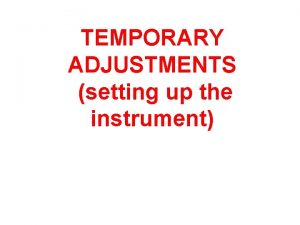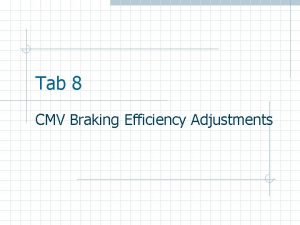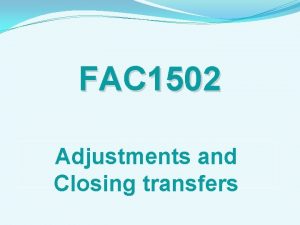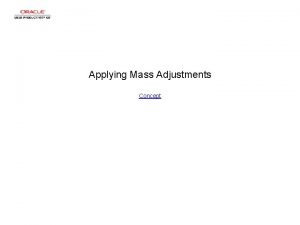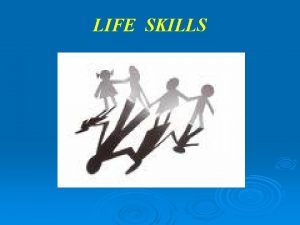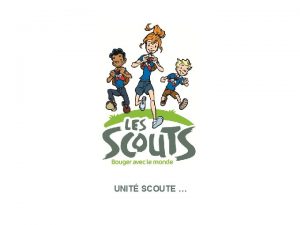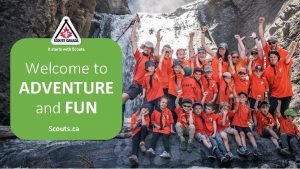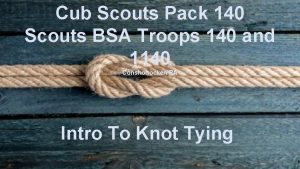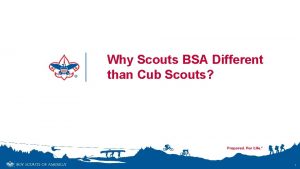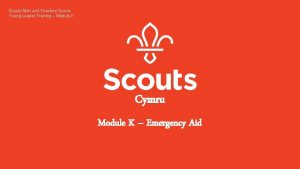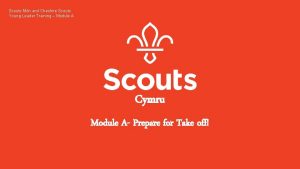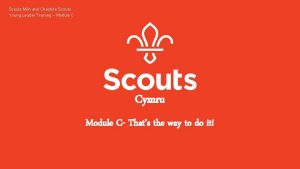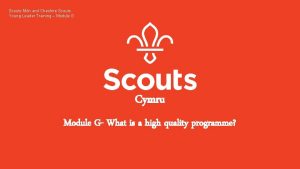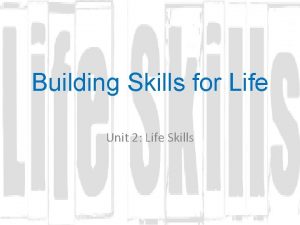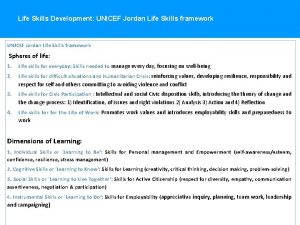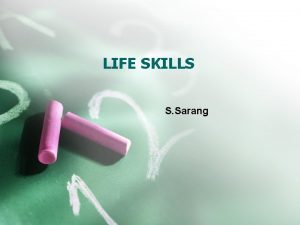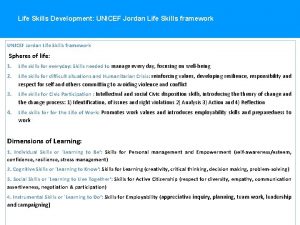Skills For Life Module 36 Adjustments to Scouts



























- Slides: 27

#Skills. For. Life

Module 36 Adjustments to Scouts

Module 36 Understand UK legal framework and what's meant by the term disability Understand work to the social model of disability Identify and make changes to Scouts in context for individuals Facilitate and make reasonable adjustments to Scouts in a manner which is constructive and effective • View adjustments as conversations which are positive and enabling • Identify and make positive adjustments for autistic young people and adults • Understand where to access further help and support. • •

UK Legal requirements: UK Equalities Act 2010 Gender Recognition Act 2004/2019 UN Universal Declaration of Human Rights 1948 UN Convention of the Rights of the Child 1990 UN Convention the Rights of Persons with Disabilities 2007 European Convention on Human Rights* UK Scout Association Policies*

Disability Disabilities can be: Visible/invisible Variable Long-term or progressive Temporary Physical Mental/cognitive Behavioural All disabilities are individual.

Social model of disability The social model of disability proposes that what makes someone disabled is not their medical condition, but the attitudes and structures of society.

Models of disability Explanation activity SOCIAL MODEL ADMINISTRATIVE MODEL CHARITABLE MODEL MEDICAL MODEL Example: As an Explorer Scout I’ve been empowered to take the lead on making my own adjustments. I’m looking forward to amazing experiences in Scouts. We have full and strict procedures to determine if a disabled young person can join or remain in Scouts. I organise events for non-disabled Scouts to play games pretending to be disabled. This helps develop empathy. We already have too many disabled people in our Group and check beforehand if they’re disabled or not.

Part 1 What is a reasonable adjustment? ACTIVITY

A reasonable adjustment may be made in Scouts for a young person or adult on the basis of their: • Age • Disability (including mental or physical ability) • Pregnancy • Mental health • Temporary illness, surgery or injury

Identify when an adjustment is needed • Identify when an adjustment is needed • When a young person is experiencing difficulty in accessing Scouts. • Actively look for ways to remove those barriers, and so improve access to Scouts • In essence, delivering Scouting For All.

Badges and awards Flexible and easy to adjust Aim to improve accessibility not reduce the challenge Involve parents/carers and if possible the young person, to discuss any changes Seek approval for Queen's Scout Award or Duke of Edinburgh’s Award adjustments

Uniform Adjustments may be needed on the basis of: Culture Sensitivity/allergy/safety Disability Social-economic status

Moving between sections Sometimes it can be helpful to change the transition between section ages for a young person, as part of an adjustment. Retain and carry on any adjustments put in place. Allow friend and peer support to be carried into the transition. With adjustments, six months is generally recommended. Anything beyond six months should be in consultation with a DC and the parents/carers. When the young person turns 18 it's not possible to make an adjustment.

Scouting environment The environment that a meeting or event takes place in is a key part of the adjustment. This may include: Wall colours Sound qualities Steps, ladders, thresholds, door widths Lighting colours and light values Emotional values, ie stressful or tense environments

Temporary adjustments It's important to understand some adjustments are temporary. For example, a broken limb or other temporary loss of mobility.

Module 36 Adjustments to Scouts Considering an adjustment. Activity • Badges & Awards • Uniform • Nights Away • Jamborees • Kayaking event Make adjustments for each of the following examples: • Beaver who uses a wheelchair • An Explorer with autism • A leader who’s deaf • A Cub with low-dexterity • A Scout who’s from an economically disadvantaged background

Part 2 Making adjustments

Starting a conversation • Starting a conversation • Enable a leader or manager in Scouts to start the conversation • Make sure that the parent/carer feels like it's an informal conversation and not an interview. It's just the starting point of an ongoing partnership. • Be honest about your level of knowledge and skills. You can explain you're keen to learn from them, the parent/carer, as the expert on their child’s needs. • Be positive but realistic. Help them understand what to expect from Scouts.

Starting a conversation (continued) • Take the lead from the parent/carer, by using needs or disability. the words they use to describe their child’s additional • Remember that each young person will be different, so avoid making any assumptions. • Never diagnose or suggest a diagnosis. • Explain to the parent/carer how you plan to store and share any information you record, and make sure they're happy with this.

One-to-one support workers - Can be a parent/carer or family member or professional - Must be over 18 years old - All carers, even professional carers, should be appropriately vetted through a Scouts DBS - Attending to exclusively support individual young person - Does not form a part of any ratios of leadership - Groups shouldn't take on any financial responsibility

Discussion activity Discuss ways that an adjustment could be made for the following scenario using the parent/carer framework agreement: A Cub is attending a camp. Two days before the camp the one-to-one support worker who assists with their personal complex medical needs, informs a Section Leader that they can't make the camp. The Section Leader then contacts the DC to discuss options. What would be the best course of action to make sure the young person isn't excluded from the event?

Autism & ADHD • • • May see the world in pictures with an altered sense of reality Could be unable to read emotions or feelings Might take everything that's said to you literally Sometimes senses more acutely than everyone else May be unable to cope with any change of plans May present challenging behaviour as a way of expressing themselves.

Making Adjustments Making adjustments to Scouts for young people can be really easy. Here's a link to some great resources and ideas: www. scouts. org. uk/autism

Visual stories

Your Scouts activities

Support for leaders There's a wealth of support for leaders in Scouts on various aspects of inclusion. Some of this is on the Scouting for all pages of the website. Here are some great resources and ideas to support leaders: - www. scouts. org. uk/scouting for all - Use of the visual stories (Scouting for all) - Specialist training from the Inclusion Training Team - Inclusion themed training events - Information Centre: Info. centre@scouts. org. uk - NAS Training & www. scouts. org. uk/autism

Thank you
 Scouts module 1
Scouts module 1 Identify person from photo
Identify person from photo Scouts module 17
Scouts module 17 Scouts module 17
Scouts module 17 Slidetodoc.com
Slidetodoc.com Accounting adjustments grade 10
Accounting adjustments grade 10 Cash first approach
Cash first approach What is balance day adjustments
What is balance day adjustments Measurements equivalents and adjustments
Measurements equivalents and adjustments Balance sheet grade 11
Balance sheet grade 11 Total setting
Total setting Personal adjustment definition
Personal adjustment definition Qs 3-10 unearned (deferred) revenues adjustments lo p2
Qs 3-10 unearned (deferred) revenues adjustments lo p2 Accounting adjustments grade 10
Accounting adjustments grade 10 Prior period adjustments are reported in the
Prior period adjustments are reported in the Interest rates quotes
Interest rates quotes Final accounts with adjustments
Final accounts with adjustments Quoted items
Quoted items Journalizing adjusting entries
Journalizing adjusting entries Credit value adjustments
Credit value adjustments Iron butterfly options adjustments
Iron butterfly options adjustments Mechanically altered diet
Mechanically altered diet C device module module 1
C device module module 1 In scouts eyes what is atticus chief fault
In scouts eyes what is atticus chief fault Adhd iceberg
Adhd iceberg Stfc scouts
Stfc scouts Scouts own service ideas
Scouts own service ideas Aunt alexandra tries to scold atticus for allowing
Aunt alexandra tries to scold atticus for allowing
